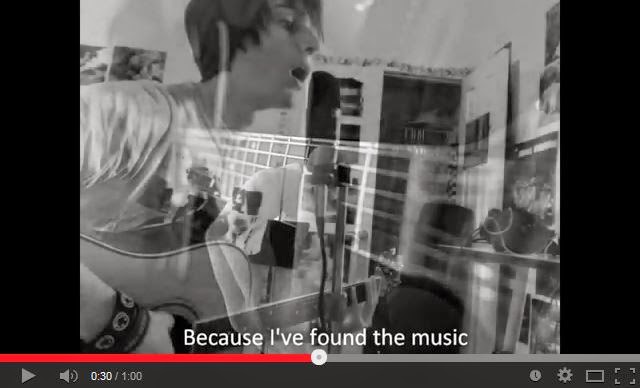Response to Kevin’s “Which Modality”
 |
| Wisdom begin in wonder. – Socrates. |
@yinbk I answered your Q with a blog post: Which Modality? Making Music http://t.co/oVxJ8uDD5Y #rhizo15 #clmooc #literacies #nwp Thanks!
— KevinHodgson (@dogtrax) June 7, 2015
Curiosity got the better of me. I posed the billion-dollar question and Kevin Hodgson responded in a reflective post. Just as he couldn’t use Twitter to express his thoughts in 140 characters, nor could I.
To provide a bit of background, I think a lot about the different ways people articulate their thoughts (After all, I’m teaching a course on Seeing Your Thoughts!) — and primarily, people use text. I often come across Kevin’s tweets and they were either presented as cartoon strips, images, sound files or some combo of these. And a must-not-miss, he is a music teacher to impressionable young minds. I had wondered how he picked from his range of creative and communication abilities to express his thoughts? Was there a dominant mode he used for thinking?
Kevin, I could tell that song-writing affects you deeply, in a transformative way. It’s where you find your voice. Or which best affords you the opportunity to articulate your deepest thoughts and emotions. Words alone flatten each of us (Sousanis, 2015). If each modality is alleged to afford different ways of meaning-making of this world, I wonder if the combination of music with text produces a powerful alchemy of meaning. I’m not saying this very well. It seems that songwriting is this force, this something that is bigger than yourself, it ensnares you and pulls you in to create something almost incredulously magical to you. You note that:
I revise more with songs than I do with other writing. I admit it: I am a terrible reviser. But with songwriting, every word is a rhythm, and
every beat is important.
Alone, without music, writing does not seem to move you to be as meticulous with writing as you do with writing with music. Is it the music then that moves you? Does this point somehow to an educational implication? Should we teach more often with music? With multiple modalities? Have you tried this with your students? Do they write better?
You also mention, Kevin, that you let yourself go, and I’m almost envious and confused by this. Because maybe I don’t know how to let go to create in the way you do? Sometimes it happens, and sometimes, it doesn’t. Is that the same for you? Powerful emotions move me a lot to write some (crappy) poetry sometimes, mostly prose. I used to want to write a play and stage it. I like singing too, but haven’t sung in a choir since I arrived in America. Theatre moves me powerfully. I paint sometimes, not enough. I doodle, not enough. I take photos, and sometimes, I can say I feel that the image is almost incredibly perfect at conveying a mood.
Have you come across Twyla Tharp’s book on The Creative Habit and Steve Pressfield’s Do the Work? I almost feel like I’m not doing the work. If I want to be powerfully creative or creatively powerful, I have to just act, not think so much.
So, I appreciate your reflective post to my question. One question you didn’t answer is a related one. In daily life, you aren’t and can’t be composing songs to sort out ideas, right? So do you think often in words without music in everyday life? Or words often appear somehow with music? Or does a tune often go on in your head?
Thanks so much for this conversation. I am rambling but what I got away from this reflection is the reminder that we are multifaceted people (I often call myself a boundary/border crosser; a hybridized person). Bringing two dimensionalities together produces something sublime for you. Yet, higher ed is just beginning to see the significance of interdisciplinary work. Ah, let me not ruin the mood.
Looking forward to more creations from you!



2 Comments
Dogtrax
Will respond … with a post …
:)
Kevin
Dogtrax
My response … http://dogtrax.edublogs.org/2015/06/12/modalities-and-me-and-you-a-continued-conversation/
:)
Kevin